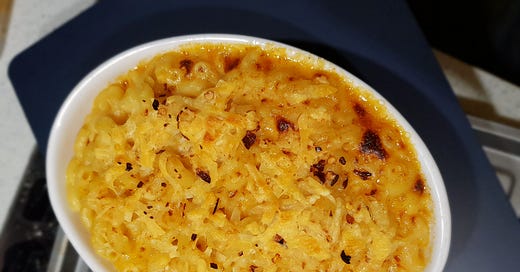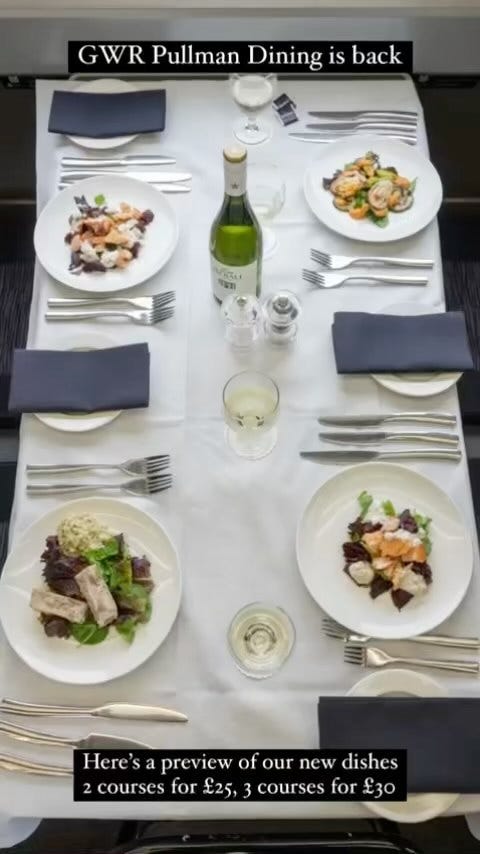The other week, I spoke about how Welsh people are known for their hospitality, and the fact that they derive a great deal of pleasure from being hospitable. I’ve been wondering about why this is the case. What do we get from it? How does it make us feel when we share food or when we offer people food or drink? I think it comes down to love.
There’s something about being able to show love through food, whether that’s in order to nourish and sustain someone, to offer a bit of yourself – a sacrifice of time, skills and store cupboard – or as a gift.
Grandparents might give you a good meal to fatten you up – in their minds it’s a way to show their love to you by making sure you’re strong and healthy, helping you to grow, seeing you enjoying yourself as you enjoy flavour and taste, and making sure your hunger is satiated. It probably also shows love to your parents, as your grandparents have saved your parents that task.
The act of giving food is one of love, but also is the act of receiving food. You can feel love when being fed by someone you care about and you know cares for you, the sentiment of being cared far, nurtured – as you might be when you are given medicine. There can be no greater act of love than by healing or soothing someone’s pain, perhaps with the magical properties of a homemade chicken soup, a prepared dinner waiting for you after a hard day’s work, or a cup of tea and biscuit to soothe the soul and start a conversation.
Welsh food culture is tied to love and has been for centuries. Go back 400 years and we see the introduction of love spoons. The earliest known love spoon – a carved wooden spoon given as a gift to a loved one – dates from 1667, and can be seen on display at St Fagans National Museum of History. There’s no definitive answer about how they came into being, but there are records and oral histories that say that men would carve them from single pieces of wood – often simply with a penknife – and give them to their beloved to show their devotion and love. They range from simple to very complex and decorative and each symbol has a particular meaning. Hearts denote love, chains or braids represent loyalty and trust, diamonds for wealth, and paisley shapes for the soul. Love spoons fell out of favour during the 19th century, but their popularity has picked up again, often as gifts for life’s big occasions – those mostly associated with love – and those that unsurprisingly often come with a feast.
The Recipe
Rarebit mac and cheese
A nice and easy, but deeply satisfying recipe this week: mac and cheese with rarebit sauce. It’s as beige as dishes come, but very comforting. You could add bits of jamón to this, cooked crabmeat, or mushrooms if you wanted to mix things up, or just keep it simple with the recipe below.
Ingredients (serves 2-4)
1 tbsp butter
1 tbsp plain flour
1 tsp mustard powder
1 tbsp Worcestershire sauce
200ml milk
110g mature Cheddar cheese, grated
100g macaroni
Salt
Black pepper
Chilli flakes (optional)
Lemon zest (optional)
Method
In a medium-sized saucepan, melt the butter on a moderate-high heat until just fizzing, then tip in the flour and mustard powder and whisk together to form a paste.
Turn down the heat to medium and bit by bit, add the Worcestershire sauce and milk to form a thick mixture. Season with black pepper.
Tip in 100g of the grated Cheddar and mix well until melted in. Leave on a very low heat, stirring often.
Meanwhile cook your macaroni in a large pan of salted water according to the packet instructions.
When the pasta is cooked, drain it and then tip into the cheese sauce and mix together. This is where I throw in a good sprinkle of chilli flakes, but you can leave these out.
Pour everything into a casserole dish, sprinkle with the remaining cheese and cook under a hot grill until bubbling and golden.
Sprinkle with black pepper and grated lemon zest.
If you try the recipe out, don’t forget to tag any photos with #mywelshkitchen.
The Playlist
To me, cooking and music go hand in hand, whether that’s singing at the top of your voice using a wooden spoon as a microphone while waiting for pasta to boil, or dancing around with the oven gloves on as the oven timer counts down. Here are this week’s ideas for your Welsh Kitchen playlist.
Lili Wen Fach by Lleuwen
Being Sentimental by Bright Light Bright Light
The Pantry
Good food is nothing without good ingredients and thankfully there are plenty of fantastic Welsh products on the market. Here is where you’ll find recommendations to stock up your cupboard, fridge or fruit bowl, or a really great place for food.
GWR Pullman Dining
Last week, I was lucky enough to try out the new Pullman Dining service on the Swansea to London Paddington train. Previously – for the past six or more years – it has been a breakfast service, offering a full breakfast to your table complete with cereals, toast, bara brith, Welsh cakes, a cooked breakfast and as much tea and coffee as you could drink. It stopped during the pandemic and has now re-emerged as a lunch and dinner service (13.23 off Swansea, 18.48 off Paddington). That means, a two (£25) or three-course (£30) set menu, wine and tea and coffee, all served to your table by the ever-amiable Diane and Marc and team. I enjoyed duck and chicken terrine to start, pan-fried cod and pearl barley risotto for main, and a dreamy prune and pear tart with custard for dessert, all washed down with a crisp Muscadet. Expect proper glass and china, tablecloths and napkins and an oh-so friendly welcome. This is train travel at its best, and I do hope they bring back the breakfast soon, too.





